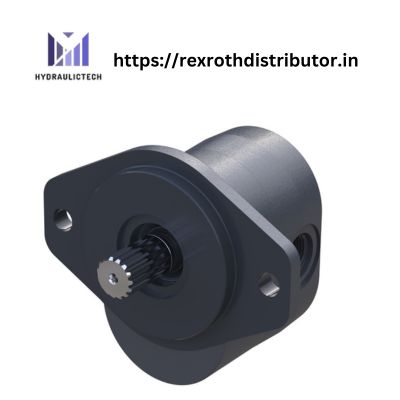In the world of hydraulic systems, two names stand out for their reputation and quality: Danfoss and Rexroth. Both companies are renowned for producing high-performance hydraulic pumps, but they each bring unique characteristics to the table. Understanding the differences between Danfoss and Rexroth hydraulic pumps can help engineers and purchasers make informed decisions for their specific applications. Let’s delve into the key areas where these two brands diverge.
1. Company Background and Specialization
Danfoss, founded in Denmark in 1933, has a strong focus on climate and energy-efficient solutions. Their hydraulic division, Danfoss Power Solutions, emphasizes mobile hydraulics for off-highway vehicles and industrial applications. Rexroth, on the other hand, is a German company with roots dating back to 1795. Now part of the Bosch Group, Rexroth has a broader focus that includes industrial hydraulics, mobile applications, and factory automation.
This difference in company focus can influence the design philosophy and specialization of their hydraulic pumps. Danfoss pumps often excel in mobile applications, while Rexroth pumps may offer more versatility across both mobile and industrial sectors.
2. Product Range and Specialization
Danfoss offers a wide range of hydraulic pumps, including axial piston pumps, gear pumps, and orbital motors. They are particularly known for their hydrostatic transmissions and closed-circuit pumps used in mobile machinery. Danfoss pumps often feature compact designs optimized for the space constraints of mobile equipment.
Rexroth’s product line is equally extensive but tends to have a stronger presence in industrial applications. Their range includes variable displacement pumps, gear pumps, and vane pumps. Rexroth is particularly recognized for their axial piston variable pumps used in heavy industrial applications and their advanced control systems.
3. Technological Innovations
Both companies are at the forefront of hydraulic technology, but their innovations often target different aspects of pump performance.
Danfoss has made significant strides in electrohydraulic technology, integrating electronic controls with hydraulic systems for improved efficiency and precision. Their Digital Displacement Pump technology, for instance, offers unprecedented control over individual pistons within the pump, allowing for rapid response and improved efficiency.
Rexroth, leveraging its connection with Bosch, has focused heavily on Industry 4.0 and IoT integration. Their pumps often feature advanced sensors and connectivity options, allowing for predictive maintenance and real-time performance monitoring. Rexroth’s sytronix variable-speed pump drives, which combine hydraulics with electric drives, exemplify their approach to energy-efficient solutions.
4. Efficiency and Energy Savings
Both Danfoss and Rexroth prioritize energy efficiency in their pump designs, but their approaches can differ.
Danfoss hydraulic pumps often achieve high efficiency through innovative design features like their Propel Architecture, which optimizes the interaction between pump, motor, and control systems in mobile applications. Their focus on reducing parasitic losses and improving part-load efficiency is particularly beneficial in applications with varying load demands.
Rexroth pumps tend to emphasize overall system efficiency, often integrating pump control with sophisticated electronic systems to minimize energy consumption. Their variable-speed pump drives and energy recovery systems are designed to significantly reduce energy usage in industrial applications.
5. Control Systems and Integration
The control systems and integration capabilities of Danfoss and Rexroth pumps can differ significantly.
Danfoss pumps often feature integrated control systems tailored for mobile applications. Their PLUS+1 platform, for example, allows for easy programming and customization of pump behavior in mobile machinery. This focus on mobile-specific controls can make Danfoss pumps particularly user-friendly for off-highway equipment manufacturers.
Rexroth pumps, with their strong industrial background, often offer more extensive integration options with factory automation systems. Their pumps can easily interface with PLC systems and other industrial control networks, making them well-suited for complex manufacturing environments.
6. Pressure and Flow Ratings
While both companies offer pumps across a wide range of pressure and flow ratings, there can be differences in their specializations.
Danfoss pumps often excel in the medium pressure ranges typically required by mobile equipment. Their pumps are designed to handle the varying loads and frequent start-stop cycles common in mobile applications.
Rexroth pumps, particularly in their industrial line, may offer higher maximum pressure ratings, making them suitable for heavy-duty industrial applications that require extreme force.
7. Maintenance and Serviceability
The approach to maintenance and serviceability can vary between Danfoss and Rexroth pumps.
Danfoss often designs their pumps with ease of maintenance in mind, recognizing the challenging environments in which mobile equipment operates. Their modular designs and easily accessible components can simplify field repairs and reduce downtime.
Rexroth pumps, especially in industrial applications, may emphasize longevity and reliability under continuous operation. Their pumps often feature robust construction and may include advanced diagnostic capabilities to predict and prevent failures.
8. Global Support and Availability
Both Danfoss and Rexroth have global presence, but their distribution networks and support structures can differ.
Danfoss has a strong presence in Europe and North America, with growing influence in Asia. Their support network is particularly robust in regions with significant agricultural and construction equipment markets.
Rexroth, leveraging the global Bosch network, may offer more extensive support in industrial hubs and manufacturing-focused regions. Their integration with Bosch can provide additional resources for complex system design and support.
Conclusion
While both Danfoss and Rexroth produce high-quality hydraulic pumps, their differences in specialization, technological focus, and design philosophy can make each brand more suitable for specific applications. Danfoss pumps often excel in mobile and off-highway applications, offering innovative solutions for space-constrained and variable-load environments. Rexroth pumps, with their strong industrial heritage, may be preferable for heavy industrial applications and environments requiring extensive system integration.
Ultimately, the choice between Danfoss and Rexroth hydraulic pumps should be based on the specific requirements of the application, considering factors such as operating environment, pressure and flow needs, control system compatibility, and long-term support requirements. Both brands continue to innovate and evolve, pushing the boundaries of hydraulic pump technology and offering solutions that drive efficiency and performance across a wide range of industries.










